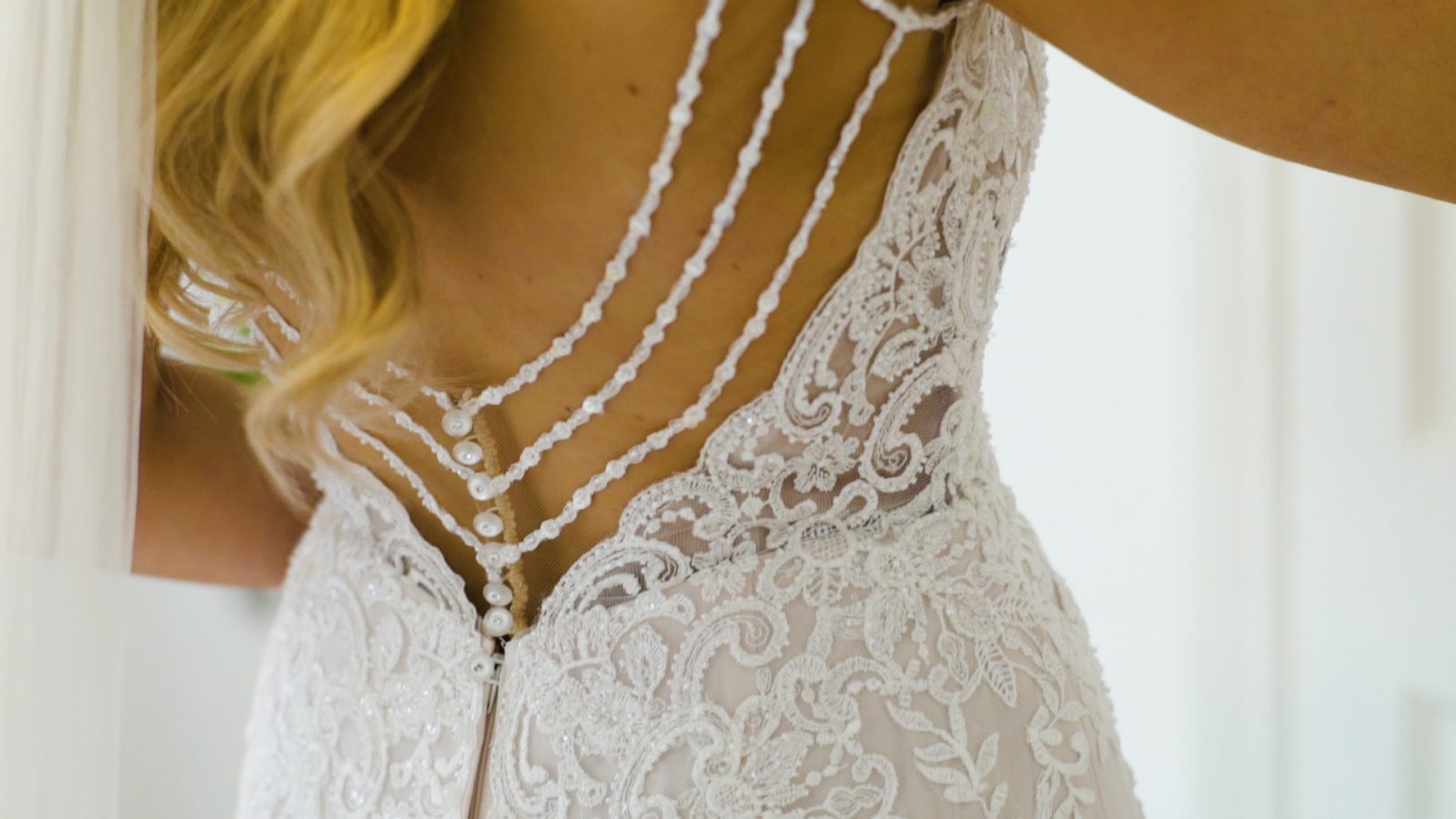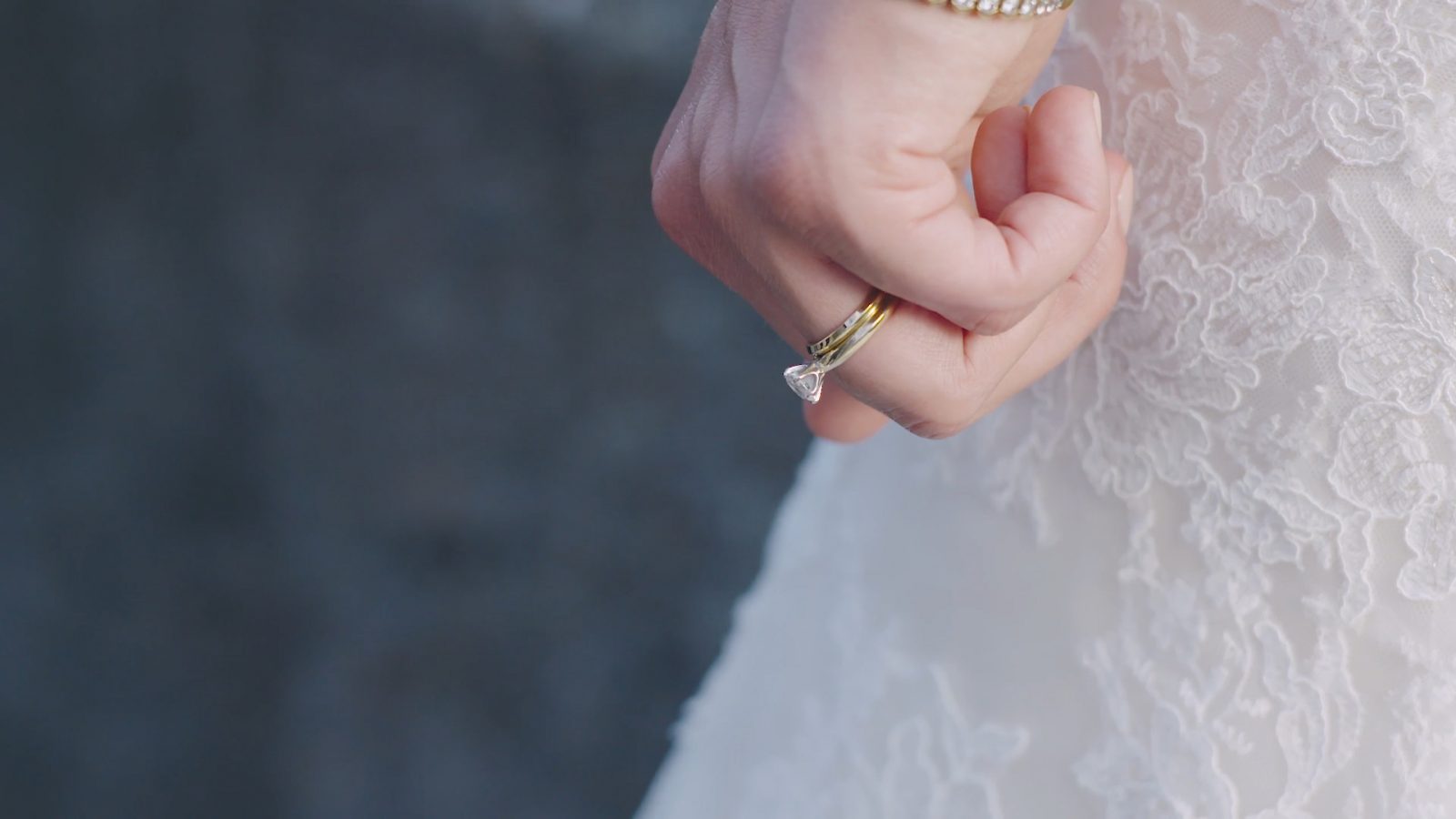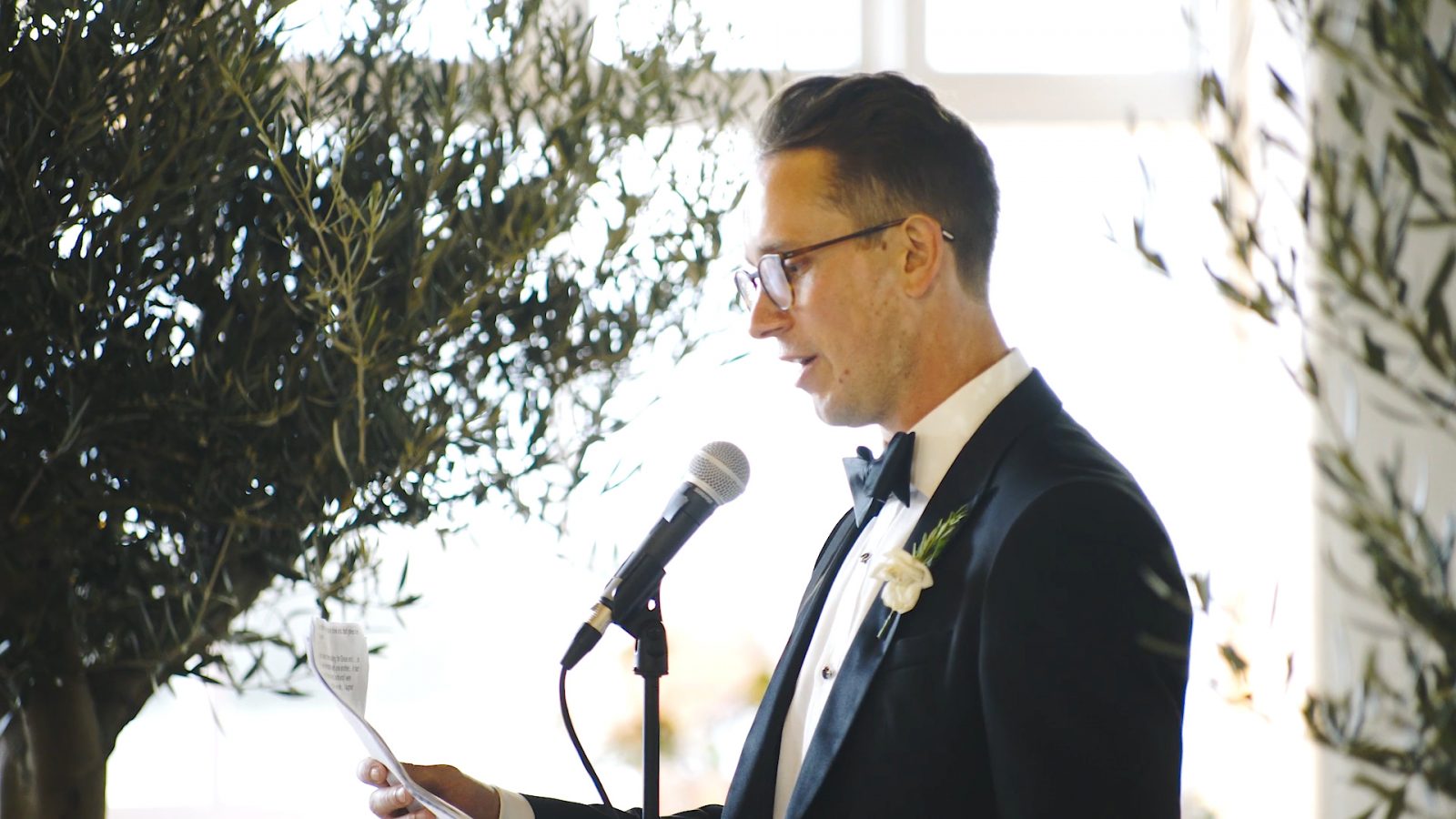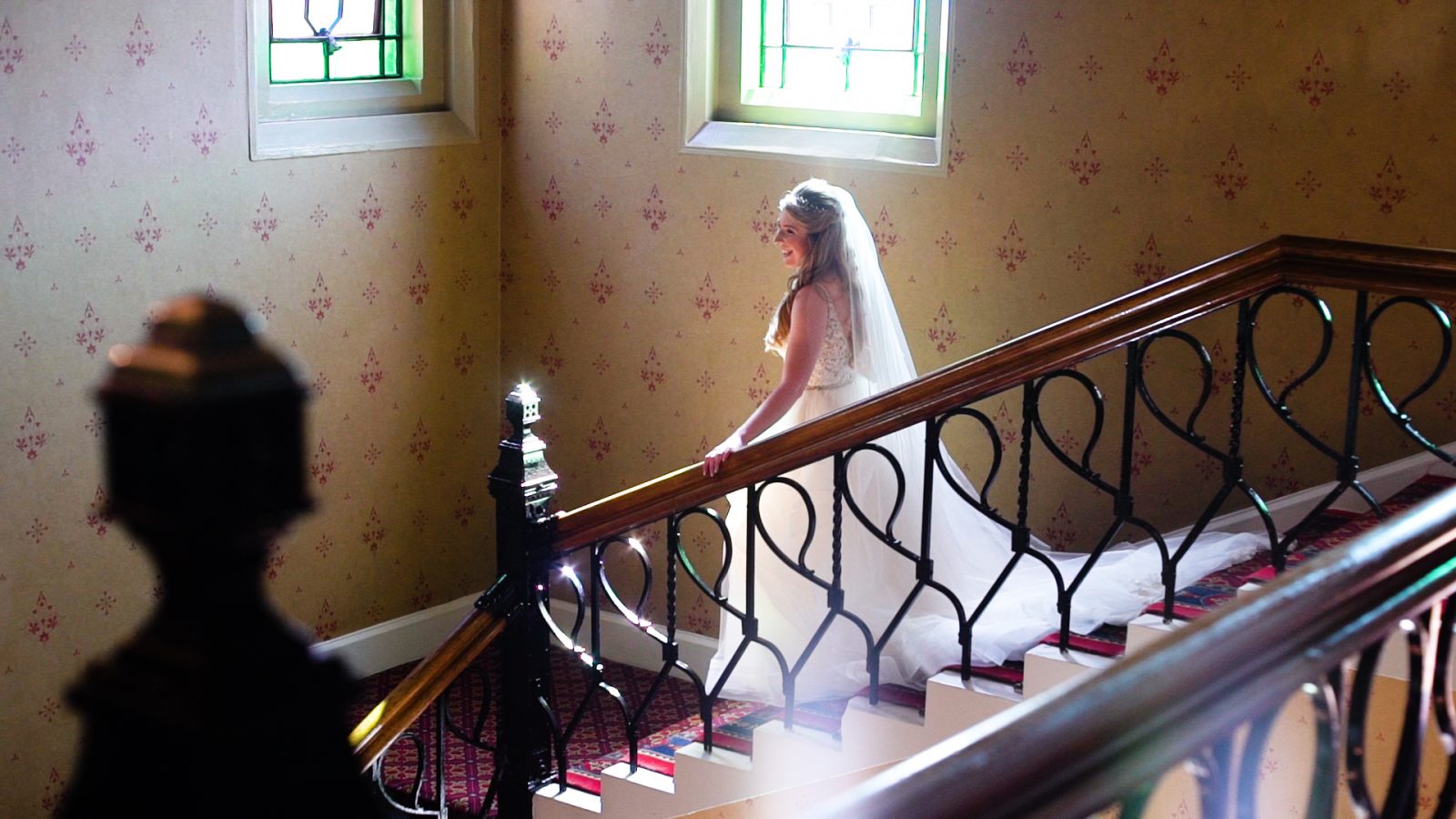Just how do you book a wedding videographer? Allow our quick guide to breakdown considerations when deciding who you would like to have film your wedding day.
Location
Does local matter? Absolutely not, most videographers travel throughout the UK. The most successful even venture overseas regularly.
The only mild concern is if the venue is, say, a 3 hour drive from where the videographer will be. In this instance they should be looking at getting a hotel the night before, closer to the venue. A three hour drive is a long time for things to go wrong with the weather, roads or a car in the morning. Most professional videographers leave around 30 to 60 minutes extra on arrival time when driving long distances to wedding venues. This should in theory be plenty however confirm your videographer follows a similar strategy.

Discretion
It’s important to remember is that it’s a wedding day, not a film set. Unless of course you do want it to be. For this you may want to consider your personalities when looking at how to book a wedding videographer that will best suit you.
Will you enjoy having the videographer with you up close and personal all day? Getting footage from that approach will make for a very different video than using someone who shoots from further away much more discreetly. As well as likely making for a classier more elegant film overall. The latter is the Confetti and Silk approach. You can find out more in our short video here.
Discretion will not only impact the type of footage captured of yourselves but also how comfortable guests will feel. Are guests ok with feeling like they are constantly being filmed? They may even have to play second choice to a camera position if you chose one who isn’t able to get great footage discretely.
Filming Style- Cinematic
Do you simply want your day documented on video, showing who was there and the location? Or do you want all of this crafted into a story with dynamic, complimenting shots and angles? Surely you want to show you and your guests in the best light making use of cinematic camera knowledge?
Most videographers now film with cameras which are the same size as those a photographer uses. When used for video these create a truly cinematic look. If you go for a more knowledgeable videographer it’s likely they know how to use available light and create pleasing compositions (everything that you see in a single shot) to make your wedding film a much higher level quality The alternative is to simply wander round capturing peoples faces as they sip their drinks.

Final Film Types
Wedding films are no longer three hour monologues of the day. A concise film with a story line, purposeful powerful filming making and use of audio from the day will create a much more compelling watch. Our most popular film is our fifteen to twenty minute cinematic highlights film. This contains everything you likely need for a full and complete recollection of the feelings you had on your wedding day.
If you’re looking for something you can share with your friends a five minute condensed highlight can be the most appealing. We don’t recommend only taking this option. If you take it as part of a package with the full ceremony and speeches films in full then you have a good collection of the full day.
If you just want the wedding captured in a professional, classic style then a one hour chronological documentary film may be relevant. This uses longer cuts on each clip, a slower editing pace and aims to show the day in full rather than create a cinematic piece. These are all considerations you should give time to when debating how to book a wedding videographer.
Coverage Length
How much coverage do you need on the day? Some couples believe it’s necessary to have the videographer there from the moment they wake up in the morning to the moment the dancing finishes. This simply isn’t true. For most British weddings a range of 8-10 hours on the day will capture everything you need to.
You likely want a little bit of time in the morning without any camera around to enjoy the morning of your wedding with the bridal party. Additionally you only really want to be filmed when you are closer to looking your best rather than the moment you get out of bed.
At the end of the night, when the booze has flowed since the ceremony wrapped up, you don’t need the drunken footage. It’s when accidents happen with guests and camera gear too. What you want is a nice montage of the dancing to show the vibe, show faces and wrap your wedding film up nicely and complete.

Solo vs Team
Many videographers are able to shoot weddings with one videographer. It is most definitely possible but does rely on a few considerations and compromises. Will there be logistics involved in morning locations. If you and your partner are at different venues it won’t be possible to get footage of you both as the videographer simply can’t be in two places.
Having two videographers gives scope for more cinematic films as they can compliment each other by shooting different angles. If you want a close up of the speaker during a speech then to have the reaction shot of the subject of the speech this is far more likely to occur if there is a second videographer.
Safety is another element sometimes overlooked when just having one videographer. If you have two people this reduces the chances of anything going wrong which cannot be edited around. Perhaps the main videographer gets stuck in traffic before a ceremony starts. The other can be there and cover for them filming until they arrive. Should the worse case happen and a camera fails the backup of this second operator will mean they are able to continue filming your day without much of an issue that you likely wouldn’t even know about.
Delivery Timescales
Video production is an extensive process to get to the highest of standards you see in our wedding films. As such it takes time. A common misconception is that you should get the video around the time you get your photos back. This is’t possible in most cases as photo editing, whilst still tricky and skilled, is likely a quicker process than all the variables which come into play in video.
A normal industry standard is around 3-4 months, some videographers take up to 12 months. Those at the cheaper end of the spectrum can still deliver them in around 7 days. Timescales will also often change throughout the year. The backlog of edits will build up when videographers are out filming 2 or 3 weddings a week in the summer. If you get married in January it’s quite possible to have your film back in February even when edited to the highest of standards for wedding film.

Still have some questions about how to book a wedding videographer? Head over to our FAQ section or Contact Us form and see if we can answer them for you.